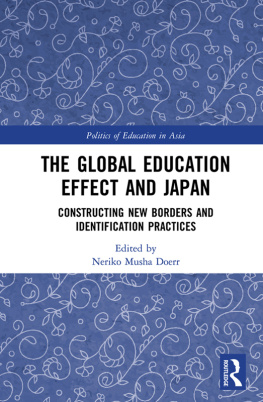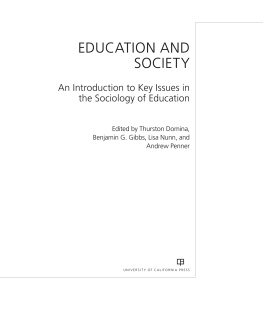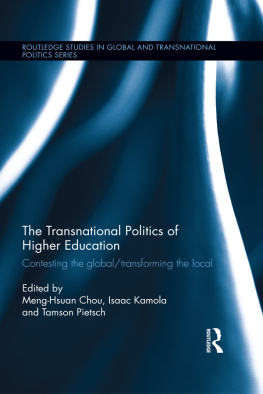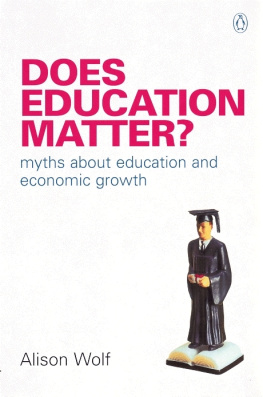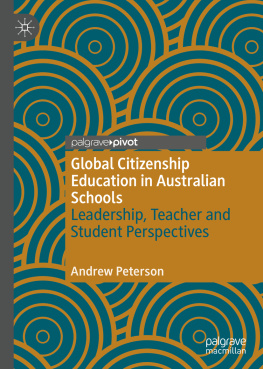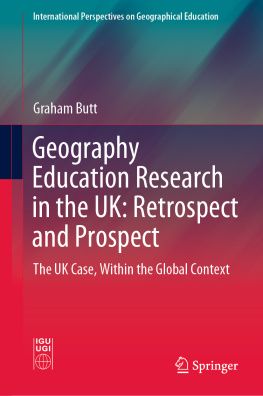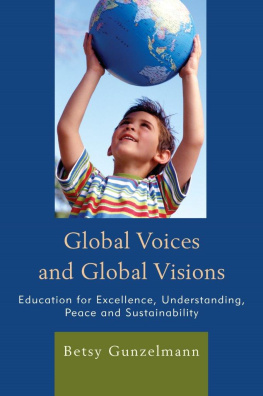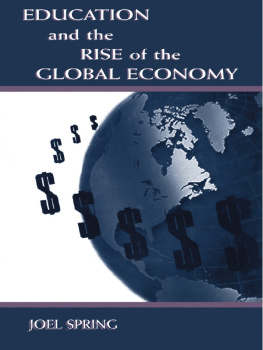
The Global Education
Effect and Japan
This volume investigates the global education effectthe impact of global education initiatives on institutional and individual practices and perceptionswith a special focus on the dynamics of border construction, recognition, subversion, and erasure regarding Japan. The Japanese government's push for global education has taken shape mainly in the form of English-medium instruction programs and bringing in international students who sometimes serve as a foreign workforce to fill the declining labor force. Chapters in this volume draw from education, anthropology, sociology, linguistics, and psychology to examine the ways in which demographic changes, economic concerns, race politics, and nationhood intersect with the efforts to globalize education and create specific global education effects in the Japanese archipelago.
This book is a valuable resource for anyone who is interested in Japanese studies and global education.
Neriko Musha Doerr received a Ph.D. in cultural anthropology from Cornell University. Her research interests include politics of difference, language and power, education, and civic engagement in Japan, Aotearoa/New Zealand, and the United States, as well as study abroad. Her publications include Meaningful Inconsistencies: Bicultural Nationhood, Free Market, and Schooling in Aotearoa/New Zealand and Transforming Study Abroad: A Handbook, and articles in journals such as Critical Asian Studies, Identities: Global Studies in Culture and Power, International Journal of Cultural Studies, and Journal of Language, Identity, and Education. She currently teaches at Ramapo College in New Jersey, USA.
Neriko Musha Doerr received a Ph.D. in cultural anthropology from Cornell University. Her research interests include politics of difference, language and power, education, and civic engagement in Japan, Aotearoa/New Zealand, and the United States, as well as study abroad. Her publications include Meaningful Inconsistencies: Bicultural Nationhood, Free Market, and Schooling in Aotearoa/New Zealand and Transforming Study Abroad: A Handbook (both Berghahn Books), and articles in journals such as Critical Asian Studies, Identities: Global Studies in Culture and Power, International Journal of Cultural Studies, and Journal of Language, Identity, and Education. She currently teaches at Ramapo College in New Jersey, U.S.
Yuko Abe received her Ph.D. in Intercultural Education from Ochanomizu University in Tokyo. She is a faculty member and head of Japanese Language Program at Akita International University in Japan. Her research interests include intercultural education, Japanese language education and fostering meaningful and mutually beneficial interaction between international students and local communities and her work was documented in articles published in Intercultural/Transcultural Education, Japanese Language Education, AIU Global Review, and Philosophies.
Milo Debnr received his Ph.D. in sociology from Kyoto University. His main research interests are migration, ethnicity, and race issues regarding contemporary European migration to Japan, focusing particularly on the intersections of different forms of mobility and decisions of migrants about settlement recently. He is also researching the impacts of the rapidly increasing inbound tourism in Japan on local communities in Kyoto. His recent publications include Migration, Whiteness, and Cosmopolitanism: Europeans in Japan (Palgrave, 2016) and Coping with the Inbound Tourism in Gion: Resisting the Touristic Gaze (Intercultural Studies, 2019). He currently teaches at Ryukoku University in Kyoto, Japan.
Ngc Anh is currently a graduate student under the supervision of Professor Masakazu Iino at Waseda University. She finished her undergraduate program and honors thesis on the self and translanguaging under Professor Gregory Poole's guidance at Doshisha University. Her current research interests involve language education, autonomy and motivation, as well as language and power, and translanguaging.
Roy G. Hedrick III is currently a Ph.D. student at Doshisha University in the Graduate School of Global Studies. He is interested in exploring the disconnect between the promises made by the discourse of study abroad and what students say they experience while undergoing study abroad.
Yuki Imoto received a Ph.D. degree in social anthropology from Oxford University in the United Kingdom. She currently teaches at Keio University in Japan.
Uichi Kamiyoshi, awarded an MA., from Osaka University, is an associate professor at Musashino University in Japan. His research interests include Japanese language learning through critical pedagogy and language policies for immigrants in Japan. He currently serves as the Vice President of The Society for Teaching Japanese as a Foreign Language, as a member of the Japanese Language Educational Issue Subcommittee, the Japanese Language Subdivision of Council for Cultural Affairs (a government agency), and as the advisor for the Start-up Program for Community Japanese Language Education for Council for Cultural Affairs.
Mako Kawano received a master's in human resource management from the University of Leeds. She has worked as an international admissions officer, a special project coordinator for Global 30 and Top Global University projects, and as senior institutional research analyst at several Japanese universities. Through these positions over the past 15 years Mako has been directly engaged with the internationalization of higher education in Japan. Presently she is an administrator in the International Strategy Office at Kyoto University.
Adam Komisarof, Ph.D., is a professor in Keio University's Faculty of Letters in Tokyo. His research interests are in intercultural communication, acculturation psychology, and intercultural education. He spent a sabbatical at the University of Oxford (201213), where he conducted research as a Visiting Academic at the Nissan Institute of Japanese Studies, St. Antony's College. He has published three books, the newest being Crossing Boundaries and Weaving Intercultural Work, Life, and Scholarship in Globalizing Universities [with Prof. Zhu Hua] (Routledge), as well as numerous journal articles and book chapters, such as a recent coauthored paper about acculturation in East and Southeast Asia in The Cambridge Handbook of Acculturation Psychology, 2nd edition (Cambridge University Press). Dr. Komisarof is a fellow and the president-elect of the International Academy for Intercultural Research.
Yuri Kumagai received an Ed.D. in Language, Literacy, and Culture from the University of Massachusetts Amherst. Her specializations are critical literacy and multiliteracies in world language education. Her research interests include language ideologies, semiotic landscapes, and translingual practices. Her publications include A Genre-Based Approach to Reading as a Social Practice, Multiliteracies in World Language Education (both Routledge), and Language Education for Social Future (Coco Shuppan). Her articles appear in journals such as Critical Inquiry in Language Studies, Japanese Language and Literature, Writing Systems Research, and L2 Journal. Currently, she is Senior Lecturer of Japanese at Smith College.
Hiroshi Ota is professor at the Center for General Education at Hitotsubashi University, Tokyo, where he serves as Director of the Hitotsubashi University Global Education Program. His research primarily focuses on higher education policies and practices related to internationalization and international student mobility from a comparative perspective. Prior to his current position, he worked for the Office of International Education at State University of New York at Buffalo, and Toyo University. From State University of New York at Buffalo, Ota received his Ed.M. and Ph.D. in Comparative and Global Studies in Education. He was also awarded a Fulbright Scholarship.
Next page
